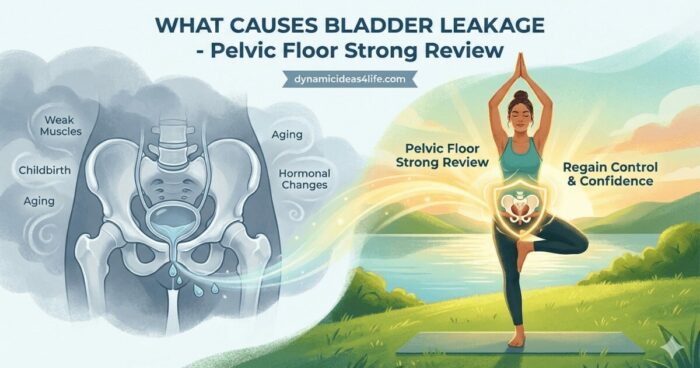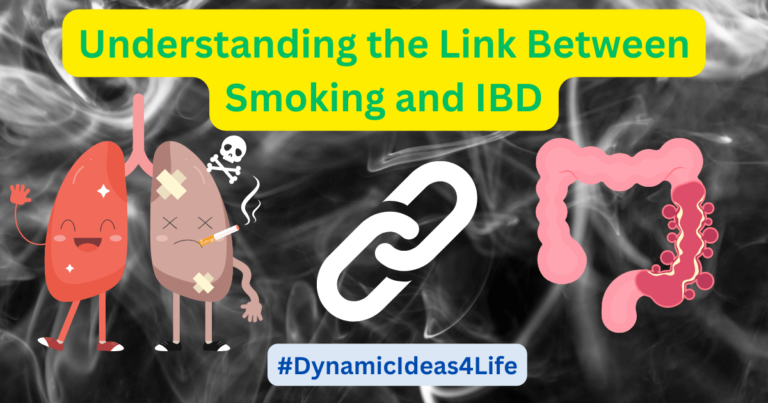
Understanding IBD flare-ups requires a comprehensive grasp of the different facets of this complex condition. These incorporate not just the different forms of Inflammatory Bowel Disease – ranging from Crohn’s disease to ulcerative colitis – but also the triggers and symptoms associated with a potential IBD flare-up.
Recognising these elements can enable individuals to be more proactive in managing their condition, producing the potential to drastically improve their quality of life. We delve into the potential causes of such flare-ups, shedding light on a spectrum that covers everything from the potential impact of stress to specifics related to particular food items.
The unifying goal remains to provide a clear, concise, and comprehensive guide to understanding this condition in a manner that translates to better day-to-day management.
Understanding IBD Flare-Ups: Triggers, Symptoms and Management – An Overview
Inflammatory Bowel Disease (IBD) is an umbrella term used to classify disorders that cause chronic inflammation in the digestive tract. The primary types of IBD are Crohn’s disease and Ulcerative colitis. Crohn’s disease typically affects the entire thickness of the bowel wall and can occur in any part of the digestive tract. On the other hand, Ulcerative colitis is usually limited to the colon or large intestine and primarily impacts the innermost lining of the bowel wall.
Causes of IBD Flare-ups
The exact causes of IBD flares remain a subject of ongoing research in the medical community. However, certain factors are known to contribute to the onset of these flare-ups. One of these factors is the body’s own immune system. In IBD, the immune system mistakes food, bacteria, and other materials in the intestine for foreign substances, leading to an abnormal immune response which ultimately causes inflammation.
Stress is another factor that could potentially trigger a flare-up in individuals with IBD. Although stress does not cause IBD in itself, it can set off symptoms in individuals already diagnosed with the condition.
In such instances, it is believed that stress might increase the body’s inflammatory reaction, aggravating the symptoms and leading to a flare.
Diet often plays a significant role in influencing IBD symptoms. Specifically, consuming certain foods or drinks can trigger flare-ups in some individuals. Such foods may include those high in fat, dairy products, spicy foods, caffeine and alcohol. However, it’s important to clarify that these potential triggers vary significantly from person to person and not everyone with IBD will have the same dietary triggers.
Apart from the factors mentioned above, there are medications known as nonsteroidal anti-inflammatory drugs (NSAIDs) such as ibuprofen which can lead to inflammation in the bowel, potentially instigating a flare. Lastly, missing doses of IBD medications or not adhering to the prescribed treatment plan can also result in a flare-up.
Understanding and Effectively Managing IBD Flare-ups
Inflammatory bowel disease (IBD) cannot be entirely cured as of now. However, it can be managed successfully with an effective plan of treatment. This usually involves medication, alterations to diet and, in serious instances, surgical intervention.
The central aim of IBD medical treatment is to decrease the inflammation causing the symptoms. This approach provides short-term relief during flare-ups and assists in achieving longer-term remission. A commitment to regular exercise, sufficient rest, following medication plans rigorously, and altering dietary habits can significantly improve IBD management and minimise the chances of recurring flare-ups.

Recognising the Symptoms of IBD Flare-ups
How to Identify the Signs of an IBD Flare-up
IBD, encompassing conditions like ulcerative colitis and Crohn’s disease, is often characterised by a cycle of flare-ups and remission. A flare-up can come on suddenly, presenting a severe range of symptoms during these periods of remission.
Persistent abdominal pain is among the main indicators of an IBD flare-up. This discomfort usually comes from the lower right abdomen, depending on which part of the digestive tract is affected, and can become so severe that it interrupts daily routines. Diarrhoea and cramps often accompany this pain.
Diarrhoea, characterised by frequent, loose, and watery stools, is another prevalent symptom. During a flare-up, the inflamed bowel has difficulty absorbing water from waste material, culminating in diarrhoea. Depending on the inflammation severity, diarrhoea may happen several times a day or a few times a week.
A concerning symptom of an IBD flare-up is blood visible in the stool. Depending on the inflammation’s location and extent, the blood may be bright red or cause the stool to look black and tar-like. This particular symptom should prompt immediate medical intervention to prevent potentially serious complications.
A diminished appetite is also typical during IBD flare-ups. Pain, abdominal discomfort and general illness can greatly reduce the desire to eat. If this lack of appetite persists, it can lead to weight loss, malnutrition and a host of other health complications.
Alongside a lack of appetite, sudden, unexplained weight loss is a significant symptom. This happens because the body struggles to adequately absorb nutrients during a flare-up, leading to dramatic weight loss even if eating habits remain relatively stable.
It’s important to bear in mind that IBD impacts everyone differently and the severity, as well as the frequency of these symptoms, will fluctuate greatly from person to person. If you suspect an IBD flare-up based on these symptoms, you should consult a healthcare professional without delay. Swift intervention can effectively manage the symptoms and potentially serious complications, enhancing overall health and quality of life.

Trigger Factors for IBD Flare-Ups
The Impact of Dietary Habits
One significant activator for IBD flare-ups is dietary habits. Certain individuals with IBD have found specific foods to exacerbate their symptoms. While these ‘trigger foods‘ differ among individuals, there are common offenders including dairy products, high-fibre foods, fatty and greasy foods, and high sugar content items along with some spicy foods.
Foods containing gluten may also instigate flare-ups in some cases. The consumption of alcohol and caffeine could aggravate the intestines and can potentially spur a flare-up.
Stress
Stress is another contributing factor for IBD flare-ups. Although stress does not cause IBD, it can exacerbate the symptoms and lead to a flare-up. When the body is under stress, it releases hormones that can affect the functioning of the digestive system, which in turn can trigger a flare-up. Implementing stress management techniques, such as regular exercise, mindfulness, and good sleep hygiene can be beneficial in managing IBD.
Medication
Certain medications can also result in an IBD flare-up. Non-steroidal anti-inflammatory drugs (NSAIDs) like aspirin, ibuprofen, and naproxen can irritate the lining of the gut, worsening the symptoms of IBD. Additionally, antibiotics can alter the gut microbiota, leading to a flare-up. While necessary for other health conditions, these medications should be regarded with caution. It’s important for individuals with IBD to discuss the risks and benefits of these medications with their doctor.
Illness
Infection and illness can be triggers for IBD flare-ups. Viruses or bacteria can disrupt the normal balance of bacteria in the gut, provoking an inflammatory response. A common cold or the flu can also put additional stress on the body, potentially leading to a flare-up.
Menstruation and Hormonal Changes
In some women, menstrual cycles and other hormonal changes can trigger an IBD flare-up. Fluctuations in hormones may impact the severity of IBD symptoms. Some women may specifically experience worse symptoms in the days leading up to and during their period.
Changes in Sleep Patterns
Changes in sleep patterns can also lead to IBD flare-ups. Insufficient or irregular sleep can affect the circadian rhythms and immune system, thus potentially exacerbating IBD symptoms. Regular, restful sleep is thus crucial for those managing IBD.
Gaining insight into potential triggers is paramount in empowering those afflicted with IBD to manage their condition effectively. This could be achieved through dietary and lifestyle modifications or in coordination with a healthcare provider, adjustments to medication regimes could be made.
Management and Treatment of IBD Flare-ups
Insight into IBD Flare-ups
Conditions like Crohn’s disease and ulcerative colitis fall under the umbrella term of inflammatory bowel disease (IBD). These ailments specifically target the digestive system, causing inflammation and subsequent symptoms like abdominal discomfort, diarrhoea, weight reduction, anaemia, and constant fatigue. The term ‘flare-up’ is used to denote periods where these symptoms amplify dramatically.
Dietary Changes
The type of diet an individual with IBD should follow may vary based on their specific condition and symptoms. However, a commonly suggested approach involves eating smaller, more frequent meals rather than a few large ones and ensuring proper hydration.
Some individuals find that reducing their intake of high-fibre foods, dairy products, spicy foods, caffeine, and alcohol helps manage their symptoms during an IBD flare-up.
However, these dietary changes should be personalised based on an individual’s needs and in consultation with a healthcare practitioner or dietitian.
Medication and Treatment
The medication prescribed for managing IBD flare-ups depends largely on the specific type of IBD one has, the severity of symptoms, and how the body responds to the medication. Commonly used medications include aminosalicylates, corticosteroids, and immunomodulators. Biologic therapies, which target specific proteins in the body’s immune response, can also be used for Crohn’s disease and ulcerative colitis.
Lifestyle Modifications
In addition to dietary changes and medication, lifestyle factors play a crucial role in managing IBD. Regular exercise helps to reduce stress, improve mood, and contribute to overall well-being, making it a valuable tool for managing debilitating symptoms. Adequate sleep is also crucial to help the body repair and fight inflammation.
Stress management is another key component in managing IBD flare-ups. Techniques such as deep breathing, mindfulness, yoga, and cognitive behavioural therapy can be incredibly beneficial.
Surgical Options
Surgery is usually considered for IBD when other treatment options have not provided sufficient relief, or when complications develop. The type of surgical procedure performed depends on the kind of IBD, the severity of inflammation, and the part of the digestive tract involved.
For Crohn’s disease, one common surgical procedure is a resection, where a damaged portion of the gut is removed. In the case of ulcerative colitis, proctocolectomy, removal of the entire colon and rectum, may be considered.
Understanding the Role of Regular Medical Consultations in IBD Management
Should you live with inflammatory bowel disease (IBD), the significance of regular interaction with healthcare professionals cannot be overstated. Regular medical check-ups, which ensure early detection of flare-ups, adjustment of treatment plans when necessary, and the ongoing evaluation of treatment effectiveness, are fundamental.
Effective IBD management necessitates a well-structured, comprehensive approach that comprises modifications to lifestyle and diet, the use of medication, the option of surgery, and frequent check-ups. It’s essential, however, to discuss and agree upon any treatment methods with a healthcare practitioner, ensuring that these are both appropriate and effective for the individual.

Living with IBD: Coping Strategies and Support
Taking the Reins: Coping Strategies for IBD Flare-ups
Living with IBD requires a keen understanding of stress management, given the notable correlation between mental health and IBD. Particularly during times of elevated stress, flare-ups can occur, and the application of stress management techniques such as deep breathing, progressive muscle relaxation, yoga or meditation can help alleviate signs and symptoms.
Establishing a daily routine promotes stability, reduces anxiety and brings predictability to life, which can be quite beneficial. The positive influence of regular physical pursuits, such as swimming, cycling or walking, cannot be ignored. These low-impact exercises are perfect for stress management and maintaining physical health, which is especially vital when dealing with IBD.
Proper nutrition plays a crucial role when living with IBD, given that flare-ups often reduce appetite. Consuming a balanced diet is crucial for overall health and well-being, so it is recommended that individuals work with healthcare professionals to create a personalised diet plan that meets their needs, promotes health, and helps alleviate symptoms.
The Importance of a Supportive Network
Living with IBD can sometimes be an isolating experience. Hence, the value of an understanding, empathic and supportive network cannot be overstated. This network can include close friends, family, or co-workers who understand what you’re going through.
This support doesn’t replace the care provided by healthcare professionals, but it can provide emotional strength and help manage your day-to-day life. A supportive network can assist in practical ways too – accompanying you to appointments, helping you shop for groceries, or simply offering a listening ear when you want to share your feelings.
Moreover, the empathic understanding and comfort of people who’ve walked in your shoes can be invaluable. This is where support groups come into play.
Benefits of Support Groups
Support groups provide a safe place to voice concerns, share experiences and learn from others dealing with similar challenges. They allow you to connect with people who understand the physical and emotional rollercoaster that IBD can be.
Such groups, whether online or in-person, offer various therapeutic value. From empowering you with information to alleviating feelings of isolation, these groups can often shed light on aspects of living with IBD that medical professionals might not touch upon.
IBD can significantly alter the way you live your life. But you need not let it define you. By adopting stress management techniques, eating a balanced diet, and leveraging your supportive network and support groups, you’re taking control back from your condition. Remember, a diagnosis of IBD is not the end, rather it opens a new chapter of resilience, hope and adaptability.

In Conclusion
Managing IBD and its latent flare-ups is an ongoing journey, but embracing adjusted lifestyle habits and following necessary medical directives can buffer against the challenges it poses. It’s vital to sustain regular medical consultations, as they are pivotal in tracking condition progression and ensuring effective treatments.
At the same time, developing coping strategies and creating a supportive network is just as crucial in navigating life with IBD. A supportive community can provide a vital emotional buffer, fostering understanding and serving as a communal platform to share experiences, tips, and tricks.
Never underestimate the power of shared experiences and camaraderie, their complete worth often becomes palpable amid adversities such as living with IBD. The benefits of support groups thus cannot be understated, serving as valuable havens for those afflicted.






Anxiety and Depression BiOptimizers blood pressure supplements blood sugar control blood sugar support supplements cognitive function digital products Dr Sam Robbins Exercise Gut Health Gut Health While Travelling Health Tips for Travelling Healthy Living heart health HFL how to lower blood sugar levels How To Lower Cholesterol insulin resistance joint health supplement keto dieting Keto Diet Weight Loss leaky gut supplements leptin resistance list Magnesium deficiency Matt Gallant mental health multivitamins Nootopia Nootropics nutrient supplements Probiotics Probiotic Supplements reverse type 2 diabetes stress and anxiety stress relief Supplements vitabalance vitapost Wade Lightheart weight loss articles weight loss diet plans weight loss product reviews weight loss supplements weight loss tea




